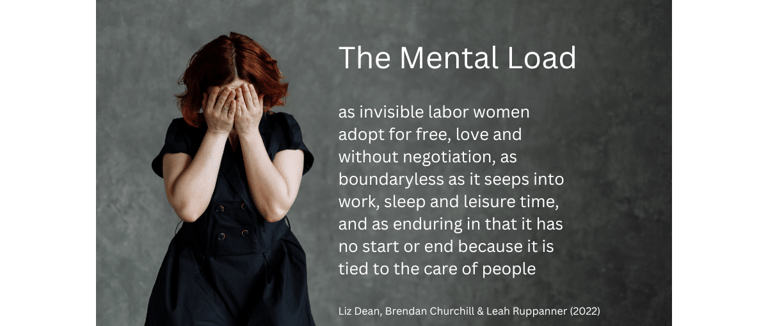Parenting with More Self Compassion
SELF-COMPASSIONPARENTINGPERFECTIONISM
Christina Corcoran


Parenthood is full of joy, but also intense worry, warns the US Surgeon General. He mentions the usual stressors but also includes parental isolation and loneliness, cultural pressures, and substantial time demands, which all relate to how we parent.
Like most parents, I’m just trying to give my kids a good life. But the stakes feel so high. What happens if I get it wrong? My child will fall behind, suffer, miss out? What does that make me? Lazy, inadequate, irresponsible?
Over the past 30 years, “intensive” parenting styles (attachment, hovering, helicopter, snowplow) have guided us to the point of exhaustion.
Characteristics of Intensive Parenting
It is best done by mothers
It is time intensive
It should be guided by expert knowledge
It is expensive (multiple stimulating activities)
Children are inherently good, precious, and innocent
With social media there’s an endless stream of headlines and videos telling us how to raise healthy, confident, engaged, kind children, while also keeping them safe from predators, toxins, violence, and bullies.
It’s information overload and puts mothers at risk of burnout. Yes, fathers are more involved than prior generations and no, they are not immune to the stress of raising kids, but women, both working and stay at home, handle the majority of household duties, on top of the cognitive and emotional work like is my child happy, making friends, and doing well in school.
The perfect parent myth
We can tell ourselves I don’t have to be the perfect parent, but the fear of being a “bad parent” overpowers us, especially for a perfectionist like myself. Perfectionism is a very common personality trait that compounds the stress parents experience.
Signs of Perfectionism
Negative inner voice (I’m stupid, I’m not good enough, I always mess up)
Rumination (replay past mistakes with I should of/could of)
Unable to enjoy the process (stress about the outcome)
Overly controlling (inflexible, unaccepting of help)
Defensiveness/oversensitivity (afraid of being wrong/criticized)
Prone to procrastination
Socially prescribed perfectionism is particularly problematic for parents: perception that others demand perfection of you: family, peers, and society; pressure to live up to their expectations; fear of being judged harshly if you fail; belief that you aren’t worthy of mercy.
Some have tried to dismantle the perfect parent myth with the “bad moms” approach. Tired of chasing unrealistic standards, these moms bond through self-deprecating stories and mockery. This kind of commiseration can feel liberating, but it only replaces one idolized version of motherhood with another. Bad is the new good.
“Performing bad motherhood is a survival strategy, not a revolution.” Mari Lehto
How do we reconcile our children’s needs with our own in a world that is contradicting, fast-paced, and unrelenting with advice and guidance?
Parenthood today is frightfully similar to codependency. Do you minimizing your own needs? Is your self-worth dependent upon other’s opinions of you? Do you take on more than you can handle (to earn praise or approval)? Do you feel guilt or anxiety for doing something for yourself?
People talk about self-care, but without addressing the reasons we put ourselves last, these efforts aren’t sustainable.
Cultivating Self Compassion
Although my daughter was a very bright and happy child, there was also intense frustration when things didn’t go perfectly. Every mistake made her miserable and left me feeling helpless. Eventually I realized in order to help her, I had to help myself. Much of early childhood learning happens through observation and imitation. She was mirroring my (over)reactions to mistakes.
The thing I was missing was self-compassion. Self-compassion isn’t just for perfectionists, in fact it is an excellent tool for anyone looking for more balance and less judgment. Bonus: children learn resilience and self-assurance by watching and modeling us.
The 3 elements of Self-Compassion
Self-kindness
Common humanity
Mindfulness
Things won’t always go right and it’s okay to feel bad, in fact, when we suppress negative feelings, they amplify. The key is acknowledging your disappointment without getting lost in it. Instead of beating yourself up, image how you would comfort a friend in that situation. This replaces self-criticism with self-kindness.
Once parents learn to treat themselves with compassion, many of the stressors will begin to correct themselves. Accepting that you don’t have to do it all, makes it easier to say no and accept help, thus freeing up your time. Letting go of the “I’m not good enough” mentality will improve your self-confidence. Knowing we all are struggling to do our best can reduce your loneliness
Remember, if you’re concerned about your stress levels consider seeing a trained medical professional, such as a doctor or mental health professional.
Christina Corcoran© 2024
